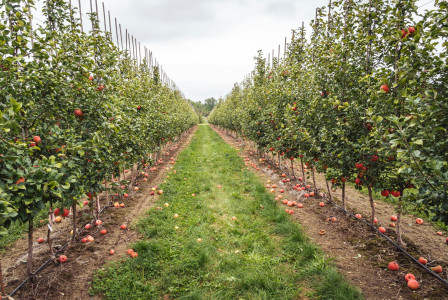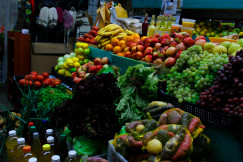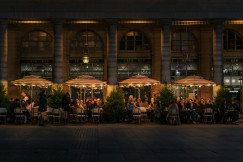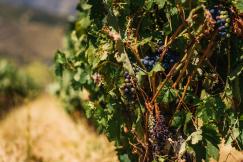Legislation
28 October 2025
Farm-gate beverage sales enhance rural tourism opportunities in Sweden
Legislation
28 October 2025
Gastronomy tourism
Changes in tourism demand and opportunities
Governance of tourism destinations
+6 more
Login / create an account to be able to react
-
20

Sweden has passed legislation enabling small-scale producers to sell alcoholic beverages directly to visitors, under controlled conditions, creating new tourism possibilities. The amendment took effect on 1 June 2025. The official legislative document is available in Swedish at the Swedish Parliament’s website.
Swedish government
Swedish government
Topics
Sweden
Academic / Research and VET Institutions
Business Support Organisation
Cluster Organisations
Consumer Organisations
Destination Management & Marketing Organisations
Industry Associations and Chambers of Commerce
Local Authorities
National authorities
Networks and Federations / Confederations
NGOs / Non-profits
Regional Authorities
SMEs (a company with less than 250 employees)
-
Specific types of tourism
-
-
Gastronomy tourism
-
-
Transition Pathway Strategic Areas
-
-
Changes in tourism demand and opportunities
-
Governance of tourism destinations
-
Tourism strategies
-
-
Business activities
-
-
Festivals, cultural and entertainment activities
-
Mobile beverage services
-
Other
-
Other food and beverage services
-
Restaurants, cafes and bars (Food and Beverage serving activities)
-
Share
In a move that promises to strengthen rural tourism and local value chains, Sweden’s parliament approved a regulation on 23 April 2025 allowing small-scale producers to sell alcoholic beverages directly to visitors from their farms or production sites. The law sets specific conditions: the beverages must be produced by independent and small-scale producers, sales are only permitted during visits in which the visitor participates in an educational activity organised by the producer, and quantities per visit are limited (0.7 litres of spirits, 3 litres of wine, 3 litres of strong beer or 3 litres of other fermented beverages). The restrictions will apply for a six-year trial period starting 1 June 2025. (The primary document is in Swedish: https://www.riksdagen.se/sv/dokument-och-lagar/dokument/betankande/battre-forutsattningar-for-besoksnaringen-i-fraga_hc01sou24/)
The reform is of particular interest to rural tourism operators and destinations across Europe. By allowing producers to combine on-site visitor experiences with direct sales, it opens opportunities for farm-based tours, tastings and product purchases—creating richer visitor offerings, extending stays and supporting local economies. Destinations can draw inspiration from this model to develop food-and-drink tourism tied to local production, heritage and landscape.
Industry stakeholders involved in the BASCIL project across the Baltic Sea Region have already welcomed the Swedish change. During a study visit to Denmark, Swedish companies participating in the BASCIL project observed small-scale farm-based beverage sales in operation, including breweries and whisky producers that combine visitor engagement with direct sales. They identified the Swedish regulation as a timely enabling factor for similar offers at home. The BASCIL website reports that participating companies value the reform for enabling deeper visitor experiences and enhanced business opportunities rooted in local production and authenticity. Read more here: https://interreg-baltic.eu/project-posts/bascil/small-scale-farm-sales-of-alcoholic-beverages-as-early-as-this-summer/
For European destinations seeking to develop rural food and drink tourism, the Swedish legislative shift provides a practical precedent. It shows how policy, production and visitor services can converge to generate innovative tourism offers that benefit both hosts and visitors alike.
#Culinary tourism #Culinary travel #Destination management #Tourism development
Comments (0)
Related content
See also
A plan to involve customers in the green transition
- Categories
- Coastal, maritime and inland water tourism Cultural tourism Ecotourism +40 more
Enhanced consumer transparency: A proposal for a regulation on green claims
- Categories
- Coastal, maritime and inland water tourism Cultural tourism Ecotourism +40 more
2023 - Country Reports
- Categories
- Coastal, maritime and inland water tourism Cultural tourism Ecotourism +64 more







